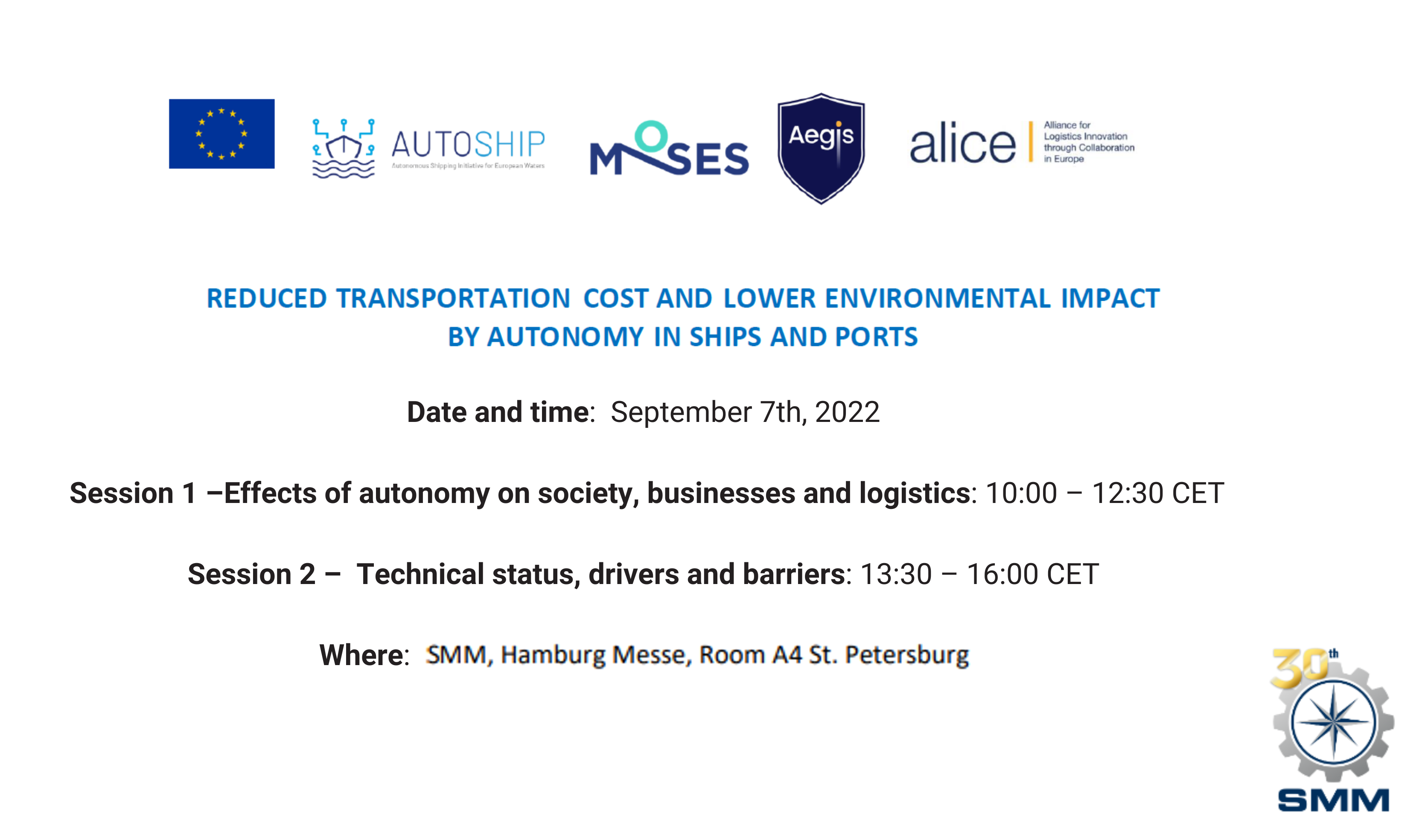Monday, August 8th, 2022

SMM, Hamburg Messe, Room A4 St. Petersburg
The seminar is free of charge for SMM visitors, and it consists of two independent sessions.
Use this opportunity to take part in a seminar dedicated to the latest advances in ship and port autonomy, and how these can contribute to the sustainable development goals and improved effectiveness in waterborne logistics.
The program for the SMM joint AEGIS/MOSES/AUTOSHIP seminar REDUCED TRANSPORTATION COST AND LOWER ENVIRONMENTAL IMPACT BY LEVERAGING BENEFITS OF PORT AND SHIP AUTOMATION is now ready.
Our seminar Reduced transportation cost and lower environmental impact by autonomy in ships and ports was conducted at SMM on September 7th and this news article includes pictures and presentations from the different sessions and speakers.
| Why autonomy in waterborne transport? – A systematic review, Marco Colella (PNO) Download presentation
Linking ship and port autonomy to sustainable developments goals and concrete societal benefits. |
|
| Leveraging autonomy to create cost effective and sustainable businesses for intra-European transport, Kristoffer Kloch (DFDS) Download presentation
An example of linking short sea shipping to inland waterways to create new automated logistics systems. |
|
| A broader perspective on logistical and supply chain opportunities created by autonomy, Antoon van Coillie (ZULU Associates) Download presentation
How can European and International cargo transport system benefit from increased automation in ports and on ships? |
|
| Reducing cost of transshipments by automation in ports and terminals, Janne Suominen (MacGregor) Download presentation
Automation in port as an essential factor for increased use of waterborne transport in supply chains. |
|
| Who will be first – autonomous car or autonomous ship?, Ørnulf Rødseth (SINTEF Ocean) Download presentation
Autonomous ships is a more realistic value proposition than autonomous cars, but current approval procedures may be too strict and costly. How the concept of autonomy is different for cars and ships, and other factors that favours the autonomous ship as winner given that the industry agrees on reasonable safety requirements that allows for cost-effective deployment of MASS. |
|
| Adaptation of port call process for autonomous ship in a big port, Jorge Miguel Lara Lopez (Fundación Valenciaport) Download presentation
The presentation aims to conceptually analyse the implications of the call of an autonomous vessel in a large port, needs, pros and cons from an operational point of view and its implications at the level of communications and information. |
|
| Automation of inland waterway vessels, Benjamin Boyer (CCNR) Download presentation
How does IWW rules and regulations adapt to automated shipping? What is the vision of the Central Commission for the Navigation of the Rhine (CCNR)? How is this linked to MASS developments in IMO? |